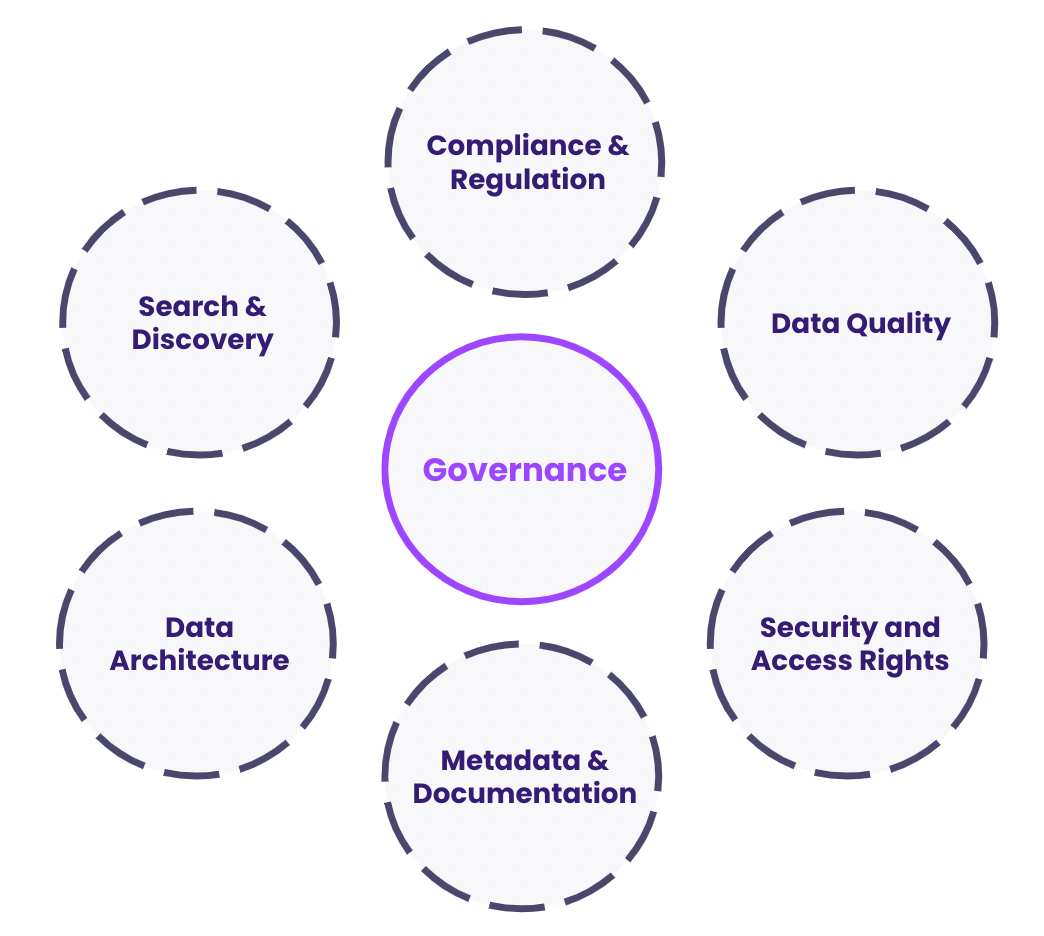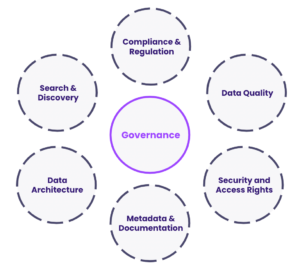Introduction
In today’s data-driven world, ERP systems play a crucial role in managing and integrating business processes across an organization. However, the effectiveness of these systems heavily depends on the quality and consistency of the data they handle. This is where data standards and policies come into play as essential components of a robust ERP data governance framework.
Data standards ensure that all data within an ERP system adheres to predefined formats, structures, and rules, enabling seamless integration and accurate reporting. On the other hand, data policies provide the guidelines and protocols necessary to manage data throughout its lifecycle, from creation to archiving or deletion. Together, they form the backbone of effective data governance, ensuring that data is reliable, accessible, and compliant with regulatory requirements.
Data standards and policies are the backbone of effective ERP data governance. They ensure that data is consistently formatted, accurately maintained, and aligned with business objectives. Without these foundational elements, organizations risk data inconsistencies, inefficiencies, and compliance issues. This article explores how to create robust data standards and policies, leveraging tools, and techniques
The Role of Data Standards and Policies in ERP Systems
Data Standards:
Rules and conventions that define how data should be entered, stored, and processed. For example:
- Standardizing date formats (e.g., YYYY-MM-DD).
- Establishing naming conventions for materials or products.
Data Policies:
Guidelines and rules for managing data throughout its lifecycle, including:
- Data access permissions.
- Data retention and archival rules.
- Compliance with regulatory standards.
Why Data Standards and Policies Matter
- Improved Data Quality: Reduces errors and inconsistencies.
- Operational Efficiency: Streamlines processes by ensuring uniformity in data handling.
- Regulatory Compliance: Helps meet industry and government regulations.
- Enhanced Reporting: Provides reliable and standardized data for analytics.
Steps to Develop Data Standards and Policies
1. Assess Current Data Practices
- Conduct audits to identify inconsistencies and gaps in data management.
- Evaluate existing policies and their effectiveness.
2. Collaborate Across Departments
- Engage stakeholders from IT, finance, operations, and other departments.
- Gather input on key data challenges and requirements.
3. Define Key Data Standards
- Format rules: Date formats, currency symbols, and decimal precision.
- Naming conventions: Uniform naming for products, customers, and suppliers.
- Validation rules: Criteria for acceptable data inputs.
4. Establish Data Policies
- Define roles and responsibilities for data entry, updates, and review.
- Set rules for data sharing and access control.
- Create retention policies to manage the data lifecycle.
5. Use Governance Tools for Implementation
- SAP Information Steward: Ensures data quality and enforces standards.
- Oracle Data Quality: Validates and standardizes data automatically.
- Informatica Data Governance: Tracks compliance and policy adherence.
Techniques for Enforcing Standards and Policies
- Automated Validation:
- Use ERP tools to validate data against pre-defined rules during entry.
- Data Profiling:
- Analyze data to detect patterns, inconsistencies, or anomalies.
- Regular Training:
- Train employees on standards and policies to ensure consistent adoption.
- Continuous Monitoring:
- Use dashboards to monitor data quality metrics like completeness and accuracy.
Common Challenges and How to Overcome Them
| Challenge | Solution |
|---|---|
| Resistance to Change | Communicate benefits through workshops and pilot programs. |
| Lack of Alignment Across Departments | Establish governance committees with representatives from all key departments. |
| Maintaining Compliance with Policies | Automate compliance tracking with ERP tools and schedule regular audits. |
Conclusion
Defining and enforcing data standards and policies is critical for ensuring ERP system success. By leveraging tools and techniques and involving all stakeholders, businesses can improve data quality, operational efficiency, and compliance.
Read Our Previous Posts on Data Governance to Know More about Foundational Concepts

